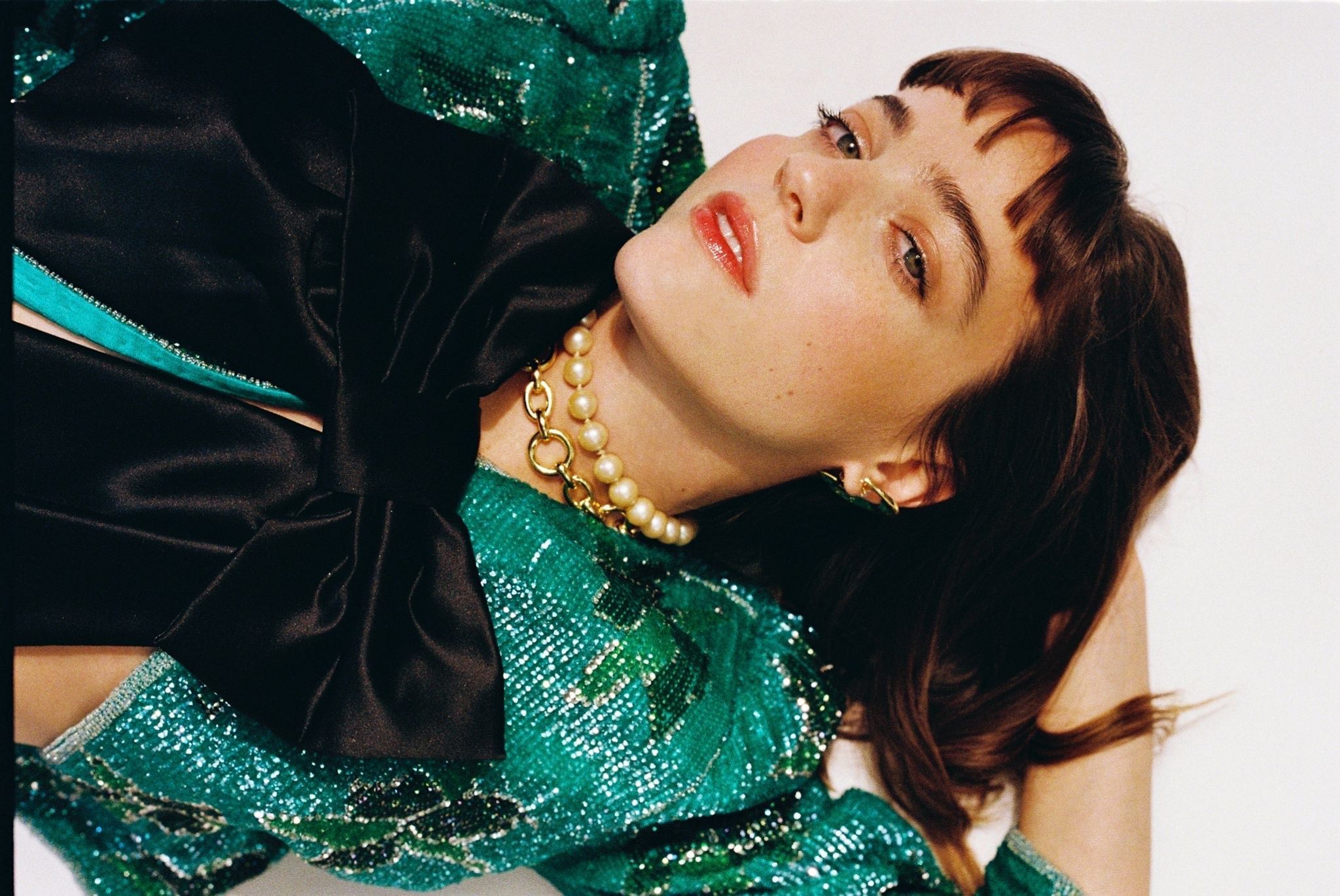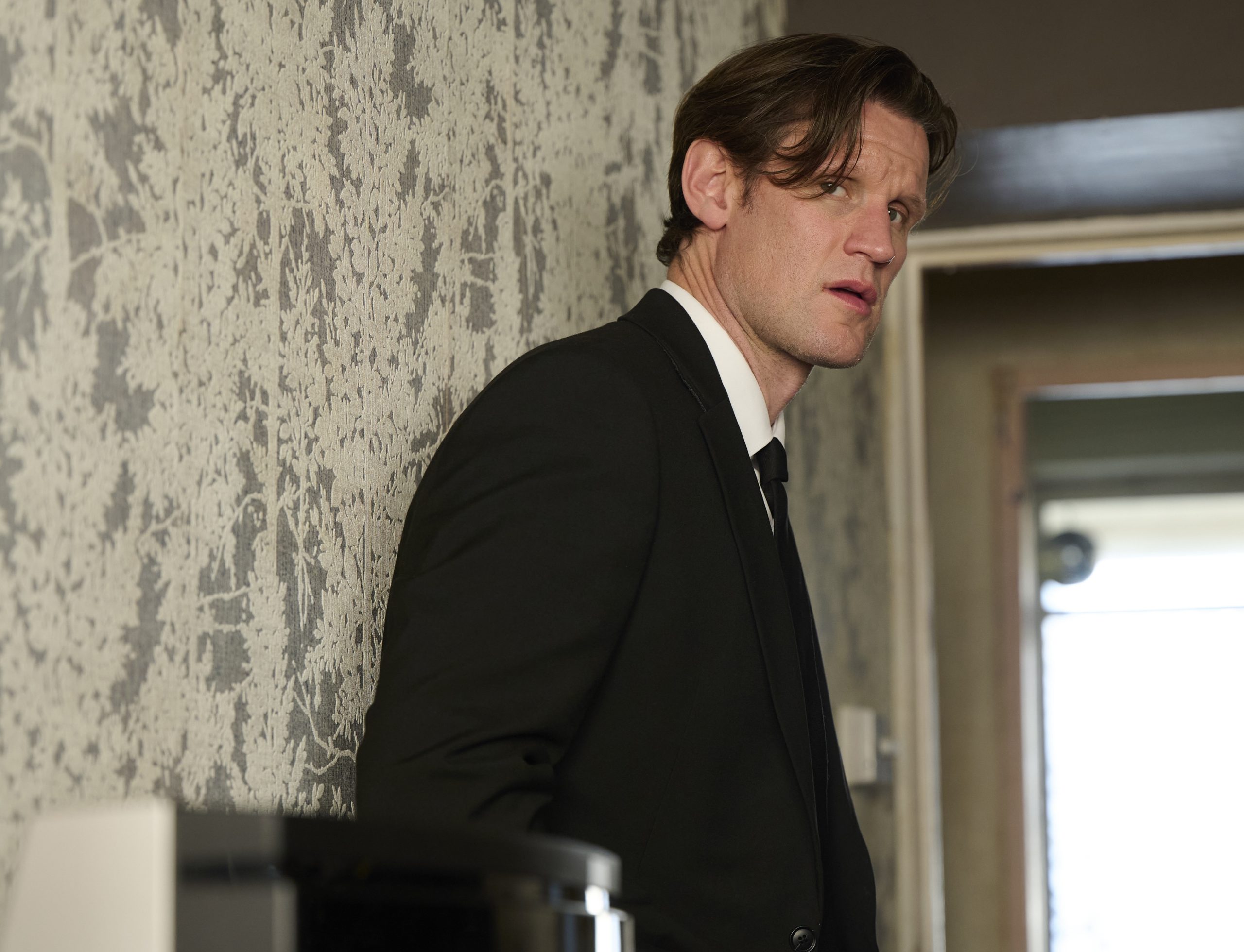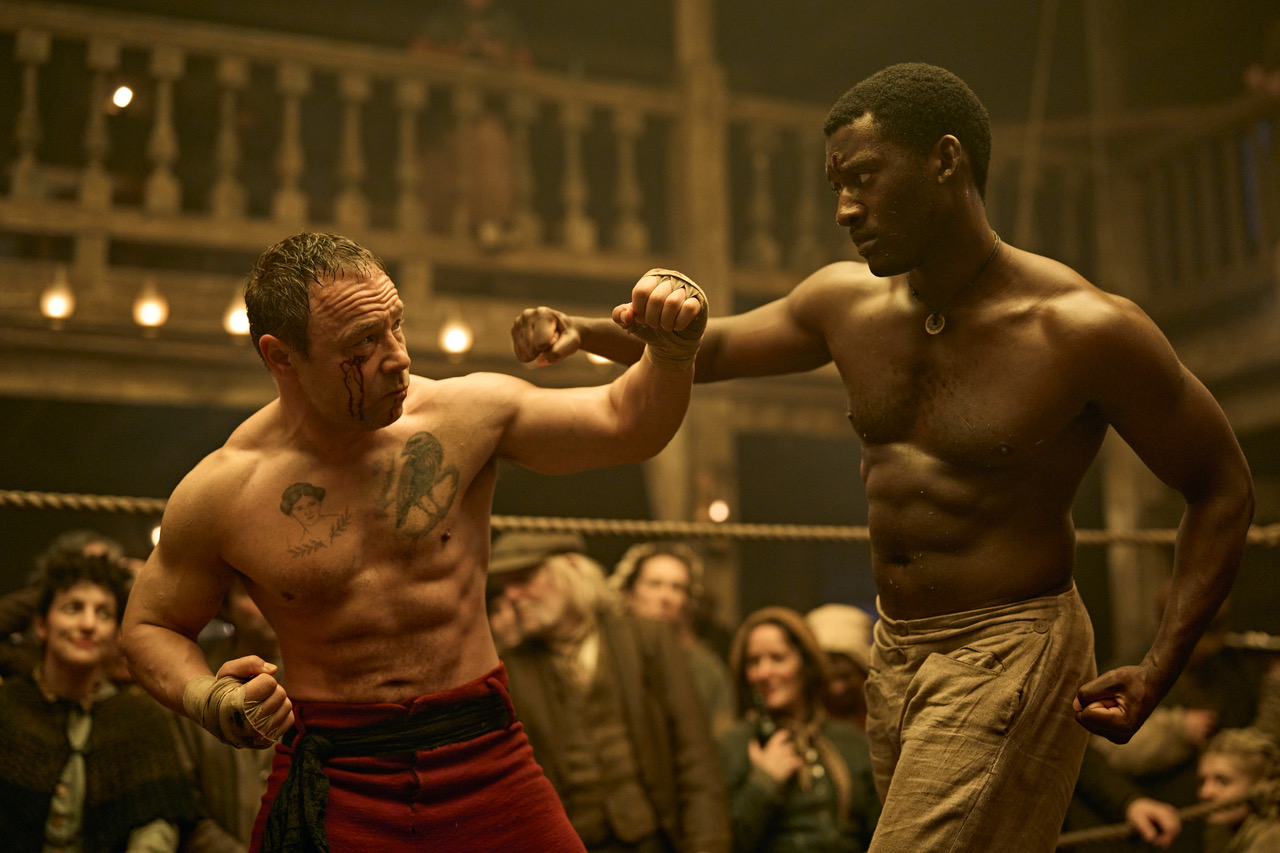Grief doesn’t follow a straight line. It bends, circles back on itself, and lingers in ways we don’t expect. Daniela Forever – the new film from Nacho Vigalondo – dives into that messy terrain to explore not just what it means to lose someone, but how memory, desire, and the need to hold on can blur the line between love & control.
At the centre of this sci-fi romantic drama is Beatrice Grannó as Daniela, the lost love of Nick (played by Henry Golding) whom he revives through lucid dreams to deal with the unexpected loss. However, his attempts to Frankenstein her memory and bend her dream self to his ideal version of her go just about as well as you’d expect. Her performance brings humanity to a film that could easily have drifted deep into the abstract, reminding us that grief is not only about absence but also the indelible imprint that love leaves behind.
For Grannó, known to many for her breakout role in The White Lotus, Daniela Forever marks a departure into new territory – her debut in English-language cinema. In conversation, she reflects on embodying a character that’s “not quite human”, and how the film lets audiences peer into this tragic story in a way that remains gentle & fun.
How’s your day going so far?
Good, good. This morning I went to the gym, which I never do. I went really early – I think it may be the LA influence that’s making me work out – and I was very excited because I travelled by rollerskating… but I fell. I didn’t really hurt myself; I just scratched my knee a little bit, so then I went to CVS and bought everything I needed. I realized that I would have spent less money if I had just booked an Uber to go there. But I don’t do it to save money. I do it because it’s fun, so it’s okay.
Also, you wouldn’t have this story either. It would have been just another day.
But I fell in the dumbest way. I wasn’t even doing anything. I was standing, and my skate got trapped in something, and I just fell to the floor. Nobody saw me. Oh, but I saw myself. And I’ll remember that.
Well, it’s funny because ever since I watched Daniela Forever, I keep thinking about what memories I would go back and relive again. That could be one of yours; you could go back and see what it looked like.
Yeah. I just felt like the coolest and in a second, I was not anymore. It’s just like, in a second, you know… It’s very much like life. Sometimes you feel like you’re on top, and it just takes one second when you get distracted, and you’re down.
Oh, life loves to do that.
Yeah.
Your new film, Daniela Forever, is out now. What a movie. I need to watch it a few more times, I feel like I have the gray walls in my head blocking details I didn’t catch the first time. It explores a lot of topics like memory, grief, attachment, and detachment. What drew you to the role of Daniela?
I feel like I was very much into the idea of making a movie that really came from a place of truth. I read the script and I was very interested in it, even though I didn’t quite know what the style would have been. So I had a call with Nacho Vigalondo, the director, and I just realized that for him, this film was very important.
Sometimes I really enjoy doing that. I like the idea of diving into work, that it’s somehow important. I thought it was for him. I honestly love playing roles of people who are not fully people. I like that idea, of playing a memory or a ghost or something. Someone who’s not fully there. I feel like there’s so much freedom in that.
Of course, for me, the idea of working for the first time in an English-speaking film where I was a co-lead, that was also very exciting. I think that these types of roles are the ones that really suit my energy.
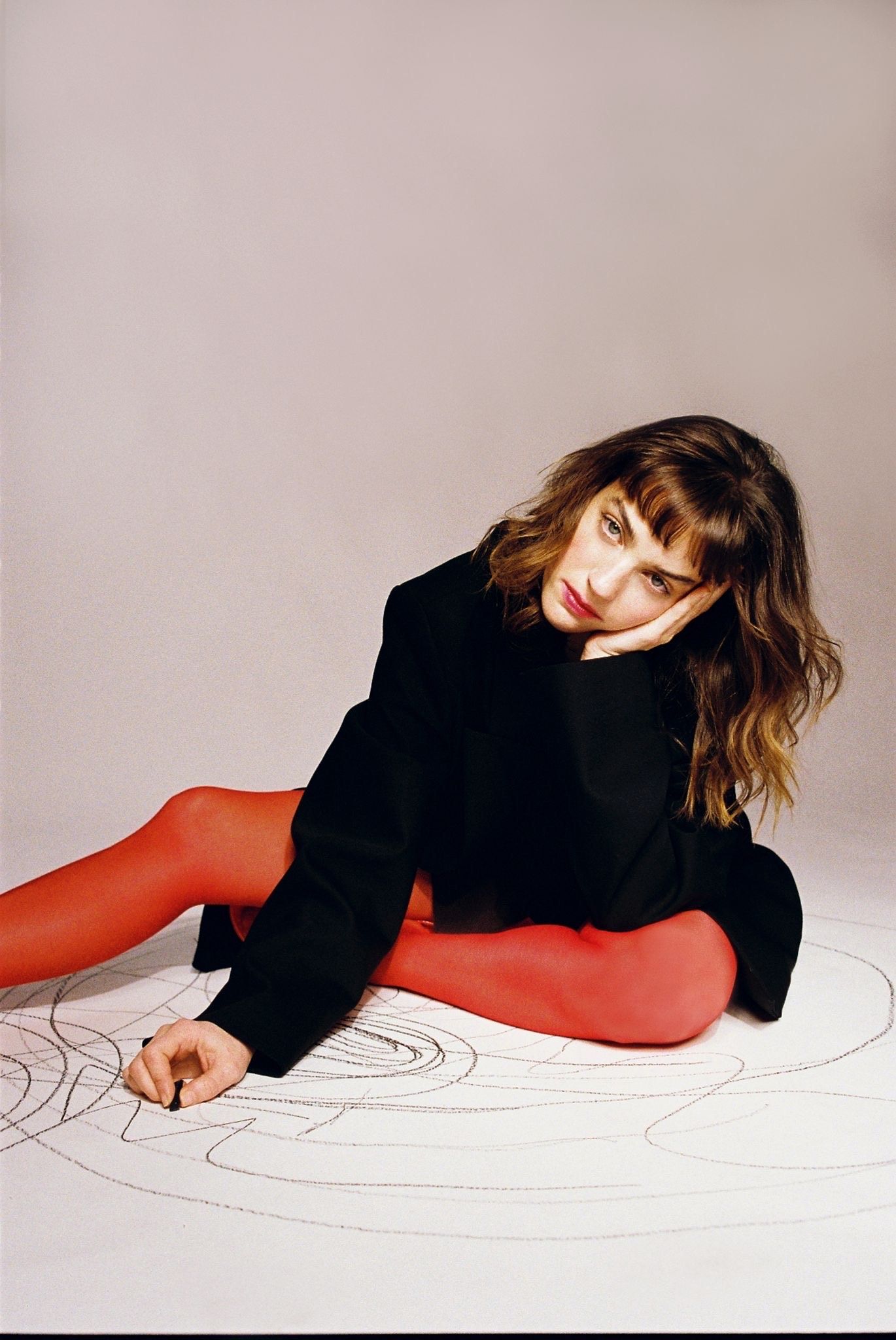
It’s funny, that ties into my next question. You’re playing the same character the whole time, but you’re playing such different versions of the same person. I feel like it must be so interesting to develop the same character in multiple ways, but still make it feel like one person. How did you separate them for yourself to focus on which version of Daniela you were?
Yeah, that was the biggest challenge, because she goes through different stages. The first stage is where she’s this lifeless human being, and she only relies on the emotions of Henry Golding’s character, Nick, so she’s just a reflection of that. Nacho wanted me to go almost in the direction of a robot, but he didn’t want to be too much of that. I had to be like both, like a living creature who hasn’t figured out how to be in the world, and I thought that was exciting. Then the more she lives in his dream, the more she becomes a real person.
Then, she starts asking questions like… Why is she there? That’s when she wants to leave again, which basically means he’s repeating his trauma again through his dreams. The only thing that I was unsure of at first is that you never really see her – you never really see who she was, you don’t know who she was before. But I think that was very intentional, because Nacho didn’t want the audience to feel that she was there again. He wanted people to feel that she was not there, and she was never going to come back. So whatever this version of Daniela he has now, it’s like… nothing.
I feel that when you lose someone, that person stops being a person and just becomes the thing you’re missing. I think the only way to really move on from grief is by accepting that the person is not a “thing.” I think when you accept that, you know, when he accepts that Daniela had her life, that’s when he starts to heal. I think that’s a very interesting way of seeing grief, which is, you know… it can be very selfish sometimes. I am not allowed to feel happy anymore if you’re not here, so I need you here or I can never be happy again. That can be heartbreaking.
Nick’s character is the victim, but he also becomes the oppressor of that. I think that was very specific. It’s a very personal way to talk about grief, which was fascinating.
I think it’s also interesting how, throughout it, Daniela almost has these moments where she starts to show more of herself. Like this dream, Daniela starts to bring in other people that she knows, or starts to bring in other memories, and he puts her back and goes, “no, no, no, I only want to remember these certain parts of you. I don’t want that.”
Yes.
“Put that away. You don’t know them anymore.” And it’s kind of interesting how… sometimes in grief, you want to remember certain things about people and not other things. It’s easy to look back at a past relationship and go, “maybe it wasn’t as bad as I remember,” because you’re not thinking about the whole anymore. It’s a really interesting way that it was captured.
I think that’s really it. That’s great that you noticed that. I think that’s an interesting way to also talk about control over something. Death is out of your control, really. You’re trying to make it about yourself in terms of “maybe I could have stopped that.”
I also feel like this world that he creates is one where he is almost like God. In this world, he can just make everything as he wants it. But as soon as she starts to live in this world, she starts asking more questions, and she wants to leave again. So he is going to lose her a second time.
I thought that was very heartbreaking, to see that happening, to see that kind of control, because you can see so many things in there. Like there’s a lot of possession over a woman.
I definitely got that feeling too. He wants her back, but he wants to dictate who she is and what she does.
I remember when we were shooting that scene in which she opens up and she’s really raw, and he fast forwards and rewinds her back and forth… I remember when I was on set, I did a five-minute improvised thing because that wasn’t written. The director said to just open up about this. I did the whole thing, and I cried, and then he worked out the back and forth.
I did feel like my own performance was dissected in a way, which I found so fun. I love to do that because we did the whole thing. But while we’re shooting other moments, I had to go back to not having tears and then being happy and then rewinding. I enjoy doing that very much. I really like to play someone who stops being a person, just becomes something else. I really enjoyed that.
That’s got to be tough. You do such a great job of it that I kept forgetting you actually had to… he’s not erasing your memory. You actually have to flip that switch yourself.
Yeah!
I feel like it must also be interesting having to play this blank slate of “I don’t know what’s going on here” and being shifted around by somebody who is playing such a high-energy performance of going through all these stages of grief. Can you talk a bit about what it was like acting in that way opposite Henry?
I made a decision at first that I always wanted Daniela to just be connected to him. The first time you see her I wanted to kind of mirror Nick with movements, because this is what happens when you dream of someone. It’s not me. It’s him. It’s him who’s creating that. So for me it was fun to always play this kind of human who was Nick at the same time.
I think the most challenging part was those lines at first when she asks questions like, “What are we doing?” She’s not really interested; she’s learning almost like a computer. I was wondering, how do I play that little thing without risking sounding like I can’t act? I don’t sound like I said this too unnaturally? Are you sure? I had to respond to him like a computer, but also being warm at the same time.
I really enjoyed working with Henry. I think he’s a wonderful person. We had a great time. I think this was one of my favourite sets so far for a film, because both Nacho and Henry — they’re always making jokes. We’re all always laughing. Sometimes we were touching very delicate feelings and emotions, and it was fun because we always kept it really light, because that’s what Nacho wanted. He never wanted to go deeper. He kept telling me he wanted to make it like a game; he wanted it to be fun.
I feel like that’s an interesting choice, too, because this could have been a very dark, creepy thriller movie. It doesn’t take that “he’s the villain” approach. You kind of stay connected to the characters instead of deciding if there’s a good and bad person. I think this film makes you question how far you’d go to relive your memories and which memories you’d choose, or if you would do it at all. I feel like we’re almost at that point in technology where like… we could.
The thing is that if I’m going through grief and I’m given the chance to choose a dream… I mean, of course you’re gonna go there. I think everybody would, everybody would dream of that. So I understand why Nick did that, instead of going through the procedure of healing. He just kept doing it, dreaming about her all the time.
I think there’s something so cute about the title, too, like Daniela Forever. It’s her forever, because it’s going to be about her forever. When you’re so sad, when you love someone so much and that person isn’t there anymore, you just feel like you’re going to feel this way forever. I think it’s a very heartfelt title.
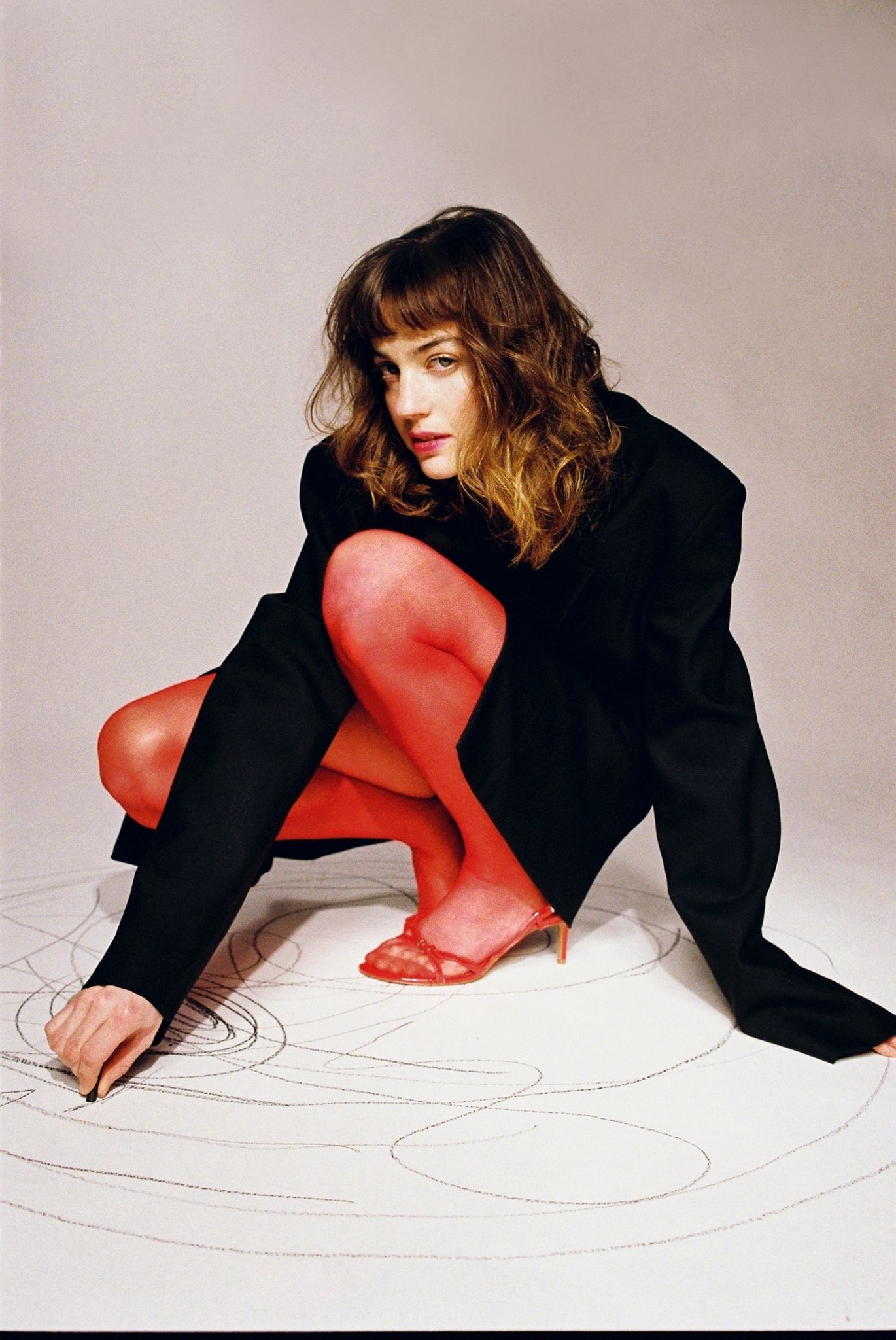
Absolutely. How do you think audiences will feel at the end of this movie?
I feel like this is a very graceful film. It’s not really doing anything to you in an aggressive way. I don’t know if that makes sense. I don’t think it’s meant to shake anyone. I think it’s meant to just give you a taste of many things. So I’m really hoping that people will see the fact that this film is gentle. I hope that’s what they feel after, because that’s what I felt after.
It’s not a film that’s supposed to keep you at the edge of your seat, even if it looks like he might go there. So maybe some people will watch it and expect that, then they will feel surprised. It’s a sci-fi romance, but I see it more as magical realism. So it has that. I mean, it’s a bit of everything, but it’s not like the sci-fi Inception thing. It’s more of a… like a moment, a transition.
Basically, it’s about experiencing loss and taking that moment and stretching it for two hours. You go into it and feel all the things that the person is feeling, and then you go back to your life. That’s how I would love people to see it, as a little crack in the wall that you can peek in and then just go back. I feel that’s what the director wanted. It’s so important to him. He really wanted people, you know, to kind of have a look, but not fully. Does that make sense?
I think so! It feels like the sci-fi aspect is secondary. You’re not supposed to be focused on like, “ooh, they can do this dreaming and change things, but what do the gray walls mean?” Like, you’re not supposed to be focused on deciphering the world. You’re focused on the relationship. You’re supposed to be focused on the people as opposed to the science. I like your description of it – it’s supposed to be gentle. It’s supposed to just show you this little piece of their life, and you’re supposed to just bear witness to it.
Yes.
As you said before, this is your debut English-language film. How was that experience, and how has it differed from Italian language films that you’ve worked for?
I did drama school in London. That’s where I studied. I lived there for almost four years. English was the language I learned to act in, so for me, it felt like going back to where I started in a good way. I love Italian cinema, of course, but I think that the idea of having access to an international background, an international world of cinema and television – I love that. I studied at a drama school in England, so I was always in contact with a different culture.
I love speaking English and playing a European. But one day, I really hope I get cast for an American role. I doubt that I can fool anyone into thinking that I’m American, but I feel that the more time I spend here in L.A. or if I find someone who trusts that I can do it, maybe line by line, I can get there. That’s not my biggest priority, but if I can fool people into thinking that I’m American… I’ve made it.
Going back to dreams, but also looking ahead at the future… you’ve done such a wide range of things in terms of language, but also in terms of the types of roles you’re playing. What sorts of things would you love to try in the future?
I would love to dive more into films. I love again, I love magic realism. I love horrors. To be honest, I think I can deliver really well on those kinds of emotional worlds. But I’m very much open to anything, so let’s see what happens.
The most important thing to me is that it’s a project that interests me. The writing has to be perfect. Otherwise, I don’t feel that I’m doing the right thing. It doesn’t matter how big the production is or who’s in the cast. What I read… I need to feel it. That’s something that maybe I didn’t have before. Maybe I’ve gotten a little older, I don’t know. I just need to really understand why that thing is on the page. It doesn’t have to be like the most important emotional reason; it can just be “because I want to make you laugh.” I just want to see a reason.
That’s very important for me because I realized that every time I do projects that have that element, they always lead to something else. It’s mathematical. It’s crazy. So that’s what I’ve been trying to do during the past two years. I’m just trying to choose the right projects, and then I’d love to release my music. So that’ll happen at some point too.
I’m a huge horror movie fan too. Do you see yourself more as a scream queen or a final girl? What’s your dream horror role?
I love that question. I think both. I love horror because it allows you to really be creative. I think horror is so scary, but it goes well with comedy as well. Some situations can be… think about Nope, for example. Sometimes horrors and thrillers can be so funny.
I enjoy playing being hurt and going crazy and screaming, and just being scared. I can play scared really well. But I also love to play scary. But my type of scary, it’s not powerful scary. It’s eerie. I can play with very uncomfortable energy. Or someone who’s really, really nice and there’s nothing wrong, but there’s some uncanny element going on that you can’t quite figure out. I love that very much.
I feel like that’s the best kind of horror, it gets under your skin and it stays with you. Oh, my God. Yeah. I love horror. It’s the best.
Very exciting. I think that wrapped up all my questions. Thank you so much for taking the time. It was so lovely chatting with you.
I loved chatting with you. Thank you so, so much.
I hope you enjoy the rest of your time in L.A. Please don’t fall anymore.
Yeah, no, I think I’m done!
Interview Paige Williams
Photography Elena Maggiulli
Styling Valeria Marchetti
Makeup & Hair Sara Petrucci

